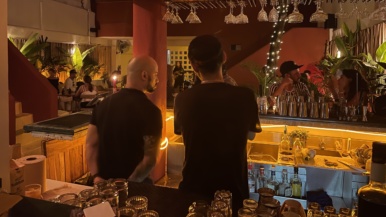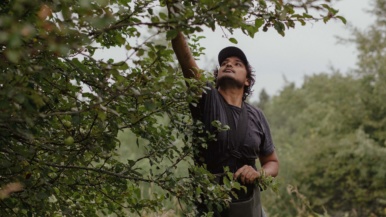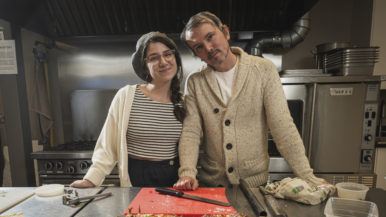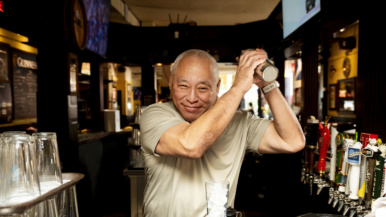I came to Canada as a refugee. When I heard Syrians needed help, I couldn’t refuse

When I was four, the Yemeni civil war of 1994 displaced my family from our small home in Sana’a. For two months, I lived with my mother and younger sister in a refugee camp in the port city of Aden to avoid air strikes and bombings. Conditions were abysmal: water was contaminated, and dozens of us were forced to squeeze into a small tent. By the time the war ended, 40 people in my camp had died of cholera.
But we survived the ordeal and, a few years later, we immigrated to Canada, settling into an apartment in Brampton. We lived off our savings for years until my mother landed a job in social services. It was easy for me to adjust to Canada—I’d learned to speak English in Yemen—but I had trouble making friends. I arrived soon after 9/11, and once, a group of boys beat me up in the schoolyard, calling me a terrorist. I persevered, and went on to thrive academically. In 2015, I was accepted into medical school at U of T and began studying to be a doctor. I’m currently in second year.
During the height of the Syrian refugee crisis, I saw a Facebook post from Julie Mahfouz Rezani, the executive director of Mes Amis, an organization that provides assistance to Syrians. The post described a refugee woman who had been forced to flee Aleppo with her husband and three children. After two years in a Turkish refugee camp, they were sponsored by the Canadian government and sent to Saskatchewan, but they wanted to move to Toronto, where they’d have a better chance of finding jobs. The woman arrived with her 11-year-old daughter ahead of the family to search for a home. After two weeks spent couch surfing with friends of friends, they found themselves homeless, canvassing strangers outside of a supermarket for a place to stay.
I knew I had to help. Moving to Canada had been a painless process for me. This family had it much worse. My wife and I decided we’d put them up in our basement apartment in Mississauga while they looked for a home.
On October 24, my wife and sister drove to pick up our new guests from a nearby home where they’d found refuge for a few nights. They were tired, worn and shaken. Both the woman and her daughter wore three shirts layered under light jackets. They had very little beyond the clothes on their backs—two small carry-on bags and a blow-up mattress. To put them at ease, I began speaking to them in Arabic. They visibly relaxed.
For the next few weeks, I took time off school and work to keep our new friends occupied and on track. I drove them everywhere—grocery stores, banks, the mall—and translated for them. I acted as a real estate agent, driving them to apartment showings. We visited several places, but few landlords were willing to house refugees with no money, no job and no credit history.
Back home, my wife and I made Palestinian food, which is very similar to Syrian fare—hummus, flatbread and a rice and meat dish called maqluba. As refugees living off the generosity of others, they were weighed down by a sense of burden, often praying for our forgiveness. In broken English, the woman would pay us their graces for feeding them. “I wish that the earth that touches your feet thanks you for how great you are,” she said.
They found joy in little things I took for granted. I brought them to a friend’s dinner party at his 3,000-square-foot house in Nobleton, where the mother was so in awe of his furnishings that she took selfies in every room of the house. Later, she told me it reminded her of her home in Aleppo.
Toward the end of their stay, they gathered up the confidence to venture out on their own. On days when I would leave the house for hours at a time, both mother and daughter would test their luck on the Mississauga transit system, heading out for a day at the mall. They would people-watch and dip in and out of stores.
After two weeks, the rest of their family arrived from Saskatchewan. I arranged for the five of them to stay in a nearby hotel until they found government subsidized housing and settled into their new lives. Now the children are enrolled in public schools and the parents take English classes, with the hope that they can land jobs in the city soon.
I was moved by the perseverance of these new Canadians, and their stay motivated me to keep helping others. I volunteered with Mes Amis, and last year I noticed that many refugees had untreated eye conditions. I worked under the supervision of Dr. Myrna Lichter at St. Michael’s Hospital—and in partnership with Mes Amis—to recruit ophthalmologists and volunteers to coordinate free eye clinics for Syrian refugees in the GTA. To date, 464 refugees have filed through our clinics.
I still call my former house guests every week. The daughter is doing well in her classes, and recently she told me she plans to go to medical school. She wants to be a doctor, just like me.
Tarek Bin Yameen is a second-year medical student at U of T.
Email submissions to memoir@torontolife.com





